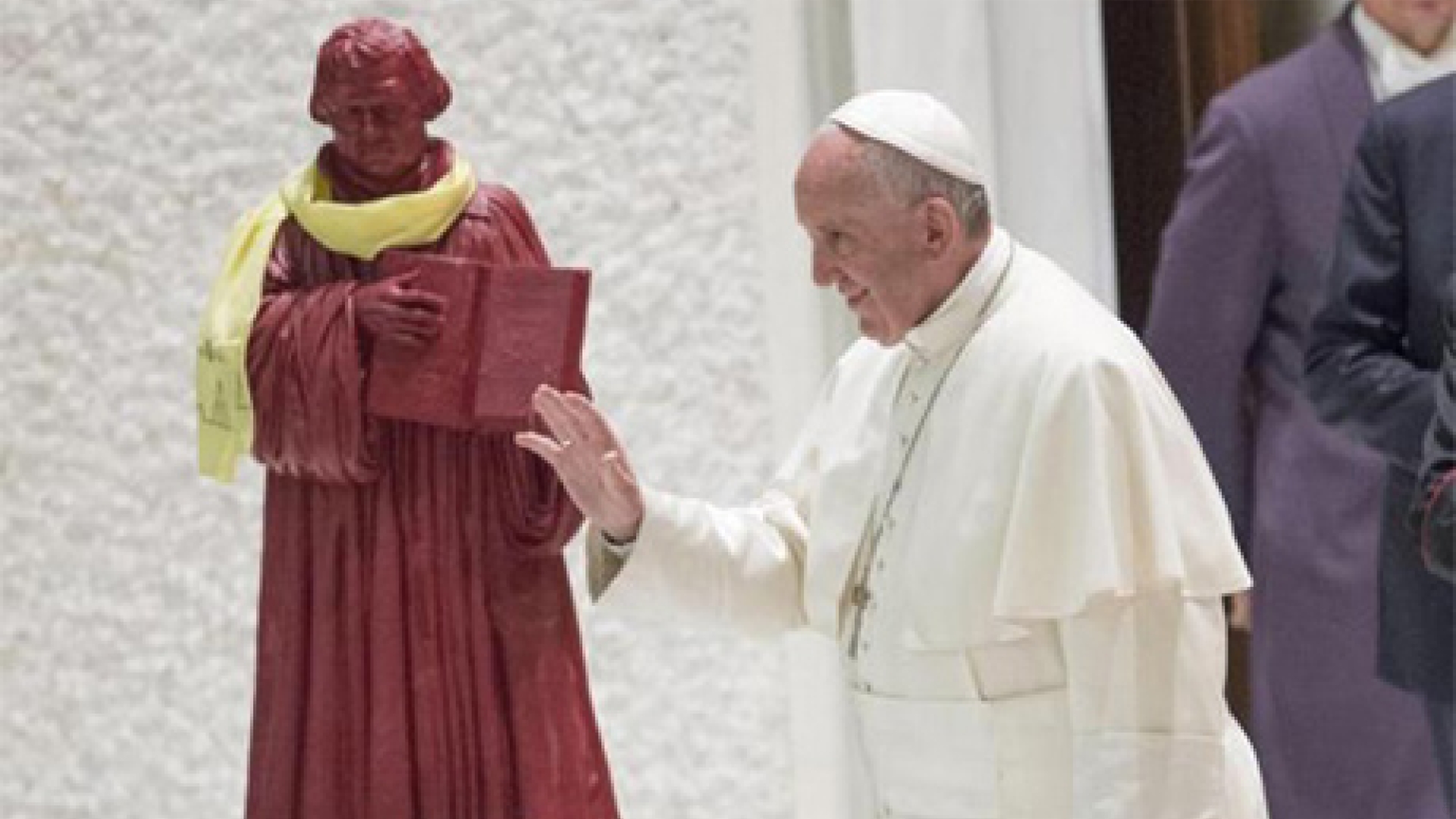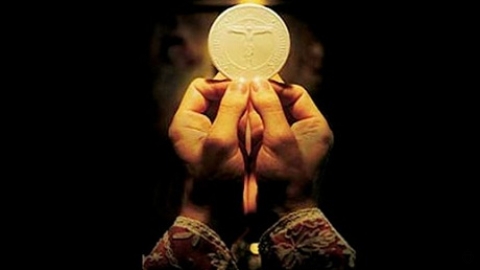Another Nail in the Coffin for Luther

The Catholic Church, is officially "celebrating" the 500th anniversary of Martin Luther. Words from a century ago are still exceptionally relevant.
On June 27, 2016 Pope Francis, spoke about the 500th anniversary of Martin Luther’s revolt:
I think that the intentions of Martin Luther were not mistaken. He was a reformer. Perhaps some methods were not correct . . . There was corruption in the Church, there was worldliness, attachment to money, to power, and this he protested. Then he was intelligent and took some steps forward justifying, and because he did this. And today Lutherans and Catholics, Protestants, all of us agree on the doctrine of justification. On this point, which is very important, he did not err. He made a medicine for the Church, but then this medicine consolidated into a state of things, into a state of a discipline, into a way of believing, into a way of doing, into a liturgical way[.]”
Confronted with these papal statements (which are an insult to the Church), we may wonder what this “Reformer” was actually up to. Perhaps the best appraisal of Luther’s revolt is that given by the counter-revolutionary thinker Louis Veuillot (author of The Liberal Illusion, available from Angelus Press). A friend of Pius IX, Veuillot explains how Luther opened the way to Voltaire and Robespierre, one of the architects of the French Revolution.
In order to pervert man, it was sufficient to sever him from the divine element, i.e. to reduce it to its own power. Luther created a Christian who, in the presence of the Church, the depositary and interpreter of the divine Truth, proclaimed that his personal reason was queen.
“By proclaiming the right to free examination, by subjecting God’s reason to the sovereign reason of man, by giving each individual the faculty or, rather, by imposing the obligation to create his own religion within the limits of the Bible, Luther rejected the divine authority present on earth and, thereby, he gave rise to purely human religions.“Luther strikes a blow at the root of the social state by shaking the stability of marriage, the basis of all Christian society. He strikes a blow at the root of the political state by removing powers and abolishing the hierarchy, which is the expansion of the Christian society. He strikes a blow at the root of the religious state by abolishing the exterior worship, which is the necessary expression of the interior worship and crown of the Christian society. This triple blow is struck in the name of liberty: for the liberty of the flesh (divorce), for the liberty of the soul, and for the pontificate of the princes and the rejection of the exterior worship. The Revolution offers us the regular and logical development of these three Protestant liberties. In the same way, as Luther had proclaimed the kings Pontiffs in the name of religious liberty, likewise, the Revolution proclaims the peoples king in the name of the political liberty of conscience.”
Luther used to say: “Mohammed rather than the Pope.” No wonder Veuillot lamented that Luther, investigated by the Inquisition and found guilty on multiple counts, was not also burnt at the stake by a pious prince eager to stifle the Protestant revolt. St. Teresa of Avila prayed much for the destruction of Protestantism throughout Christendom. Thus, through her prayers and the action of the Christian rulers, the Spanish Crown was spared the religious and civil wars which engulfed thousands of lives in 16th century Europe.
By her prayers and the intervention of the Blessed Virgin Mary, may the Church once again find leaders willing to speak out against the errors which originated with Martin Luther and work to bring those still ensnared by Protestant heresies into the bosom of the Catholic Church.


